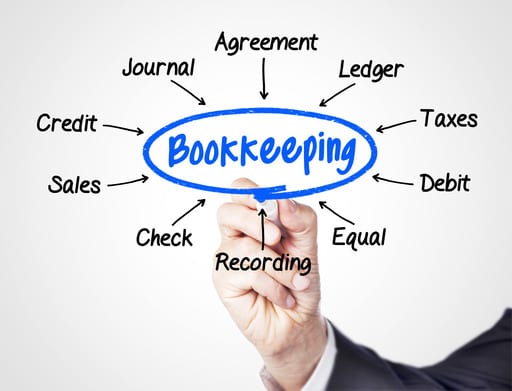Bookkeeping and Accounting are very vital aspect of any business and its an art to maintain books to keep a business going.
Whether you are a business owner or a startup entrepreneur, dreaming of creating outstanding and unique products or services, if you don’t understand the different types of “accounting techniques” or bookkeeping basics to organize your finances, measuring the success of your efforts would be ineffectual.
Bookkeeping is imperative for businesses to survive in the competitive market and it’s a primary task in every business organization regardless of their size. A proper accounting system aids in forming a financial plan which serves as a road map to achieve our goals. The main reason behind the high failure rates of small businesses is the miscalculation of their financial position owing to the lack of bookkeeping knowledge among the owners.
So, to keeping a track of your income and expenses to up your chances to earn profits and collecting the necessary financial information about your business to file your various tax returns and local tax registration papers are the two main goals of Bookkeeping and accounting. There is no way to keep your records if your records accurately reflect your business's income and expenses, the IRS will accept them.
Here are some basic common types of Bookkeeping accounts that every small business owner should know to make it big in this cut throat business world.
Cash: every transaction pass through the cash account, making it essential to keep a track of your cash flow. Bookkeeper often uses Cash Receipts and Cash isbursements to keep a tab on the flow.
Accounts payable: Basically, Accounts payable is the money your business owes. A good bookkeeping assures timely payments resulting in happy vendors who would vouch for your business helping you build a good reputation leading to better deals and rates.
Account Receivable: this is the money due from the customers in return of products or services you provided and keeping this account up to date is essential to send timely and accurate bills and invoices.
Inventory: It refers to the products to be sold. This value is shown in the balance sheet as an asset with the name of inventory only. There are two types of nventories namely, (a) periodic inventory which refers to physical count of goods in the stores and in the warehouse. This can be done quarterly, yearly or any way suits the business. (b) perpetual inventory, it simply means adjusting your inventory as and when any sales of goods take place.
Loans payable: this account tracks what you own and what you don’t. It takes record of money borrowed to purchase equipment, furniture, and other items. Loan payable can be categorized in terms of current and non-current liabilities in accordance with the time of maturity.
Sales Account: A sales report helps track all incoming income from what has been sold and a proper entry in sales account will help you keep a tab on ever fluctuating sales. This will help you to improve your sales and increase business productivity.
Purchases: this ledger records the amount a company spends with its suppliers and shows which purchases have been paid for and which purchases remain standing.
Payroll Expenses: Payroll expenses are the biggest expense category as it includes the amount paid to the employee in return of their services plus expenses incurred on their welfare as well as state & federal expenses.
Owners’ Equity: Owner's equity refers to the total amount invested by the owner in the business after deducting the amount withdrawn by him.
Earnings: Earning are the net benefits of a business which are derived by deducting the cost incurred in terms of depreciation, interest, taxes, purchase of goods etc. from sales made by the company.
ALSO READ: Highly-Valued Accounting Assistance For Students
Accounting along with bookkeeping are two critical processes to build and run a viable and successful business. Bookkeeping precedes accounting as bookkeeping involves record keeping of financial accounting, compiling source documents including every transaction, operation and all-important events taking place in the business. Bookkeeper prepares the ground for accountant. Accounting takes place as a next level of bookkeeping, it involves all the advanced processes such as internal audit, informing management regarding financial status after analyzing financial records. Accounting is process of preparing profit&loss statement and balance sheet
with the help of trial balance and ledgers provided by the bookkeeper. For a business Bookkeeing and Accounting are very important and should be under taken with outmost care.
The benefits of taking professional Accounting Assignment Help are not unknown to many. There is no doubt that annexing professional assistance is a great way to deal with the strenuous academic situation. Choosing the right assistance at right time is the key to achieve top grades.
